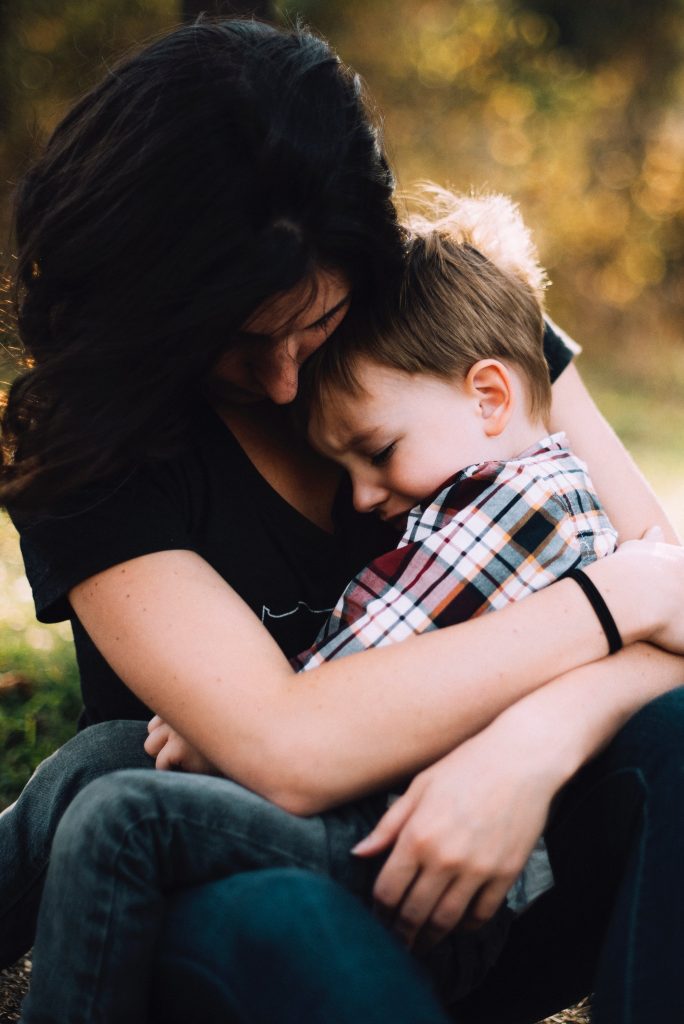Helping your Child Cope with Loss

Loss is a reality in life that we must face and accept. We tackle and learn to live by it every day of our lives. But for young children, it is something that irrelevant, foreign, and unexplored. That is why, any kind of loss – a pet who died, a lost toy, a fight with a friend, or a change of surroundings, could prove traumatic to their young psyche.

Constancy is one of the important factors in raising happy and well-rounded children. However, life happens, and it is inevitable for a child to encounter a loss. A move to another city or neighbourhood can upset their social standing. They will lose their friends, a beloved teacher, or access to their favourite playground. Separating parents, death, and a new sibling addition will significantly affect your child.
As parents, we would naturally try to shield our children from heartache, loss, and grief. However, these painful experiences are also the ones that build their character, their strength, and their resilience. Amazing traits that we would also like our kids to acquire and develop.
How can parents help their child cope with loss?
We can try, but we can never keep our children away from the bitter realities of life. Thus, we might as well prepare them for what’s ahead. Here are some helpful tips on helping a child cope with loss.

- Recognise their grief – Know that your child is grieving a loss. It could be as trivial as a lost toy or a catastrophic loss like a death in the family, but the impact will be the same to a child. There are many ways a child would deal with a loss – anger, aggression, sadness, frustration, and fear are just some of the emotions they use to exhibit grief. Not eating his food, crying, or playground aggression just some signs to look deeper into its underlying causes.
- Listen – Encourage your child to talk about his or her feelings. Ask questions that will let them go through their emotions. What do you miss the most about Granny? Why do you think Charlie was the best dog? Do you think we should paint your new room the same as your room in the old house? Let them tell their story, from their point of view. You’ll be surprised how intuitive they could be for their age.
- Always be honest – Let them ask questions and always answer them truthfully. Sugar-coating, misleading, and straight out lies will only aggravate the problem. Use age-appropriate words and phrasing, but always tell them the truth. Simple, accurate, and concise messages given with a lot of love and understanding are what they most need.
- Express your feelings too – Do not be afraid to show your feelings to your child. Let them know how you’re feeling. Share your fear, your heartache, and even your anger over the situation. Show them that they are not alone in their grief, that you too feel the same way.
- Reassure your child of your love – Make sure to provide constant support and understanding. Let your child know that whatever happens and however they feel about it, you will always be there to love and support them. Going through a change can be frightening to a child. Knowing that you will always be near and with a reassuring hand will make it a lot better.
- Minimise other disruptions – Refrain from introducing a lot of changes all at once. Going through a divorce, moving to another city, a new school, new friends happening all at once can be too much. Immediately getting a new pet to replace an old one will not erase the loss; it will only be highlighted. If you can help it, let them process one change, one loss at a time.
- Find alternative ways to express their grief – Expressing and talking about their feeling is great for dealing with a loss. However, some children aren’t always forthcoming with discussing how they feel. Get creative in helping them process their grief through expression. Painting, drawing, physical games, and music are great ways of expressing one’s emotions.
- Be patient – People have different ways of dealing with a loss. Your child is a unique person, he or she will have their way of processing pain and loss. They could withdraw for a while, go through breakdowns and meltdowns, they might refuse to cooperate. Be patient. Remember that they are hurting.

It is during trying times that our children need us the most. They are at their most vulnerable, and often, they would mask it with aggression and tantrums. Some would hide away from the pain by fibbing, silence, and withdrawal. As parents, we are responsible for recognising the signs of stress, grief, and anxiety in our children – signs that they are suffering. We must be strong and provide the love, support, and constancy they need. We might want to protect our children from grief and loss, but we should let them go through it with us by their side – guiding, supporting, loving. Then they gain the strength, resilience, and maturity they would need later in life.
